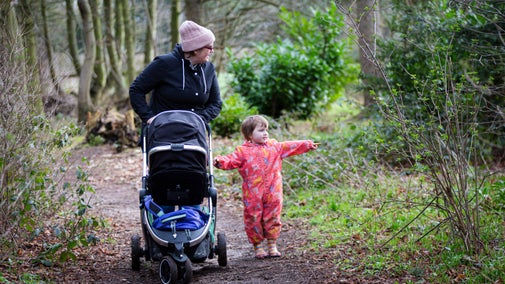
Moseley Old Hall's collections
Explore the objects and works of art we care for at Moseley Old Hall on the National Trust Collections website.

Explore Moseley Old Hall – the house that saved a King. Find out more about the fascinating tales of this special place, from its most famous connection, King Charles II, to what country life was like in 17th-century Staffordshire.
You will enter the house through the very door used by King Charles II in 1651 and discover how the Whitgreave family protected him from danger and Cromwell’s soldiers.
The volunteers bring the 17th century to life, explaining why pastry cases were called ‘coffins’, the origins of the phrase ‘Chairman of the Board’, and why we all need a hearty ‘square’ meal.

Moseley holds many intriguing items and has lots of stories to tell. Here are just 10 fascinating things that make Moseley so special:
The back door to the house is the same door used by King Charles II when he sought refuge here after his defeat at the Battle of Worcester in 1651.
He later described this door as three planks wide and studded when he dictated his memories of his escape to the famous diarist Samuel Pepys.
This is the original four poster bed on which Charles rested fully dressed whilst at Moseley.
Concealed under the floor of a ‘frippery’ cupboard, where clothing and linen would be kept, is the space where Charles hid when Parliamentarian soldiers came to the house.
It would have been very cramped for Charles who was over 6 feet tall, but he declared it to be 'the best place he was ever in'.
In the collection is the original letter Charles sent to Jane thanking her for her assistance in helping him escape to France.
He was disguised as Jane’s travelling servant and rode towards Bristol. After the Restoration, Jane was rewarded with £1,000 to buy 'a jewel for herself'. This was the same sum offered for the capture of Charles whilst he was on the run.
Over the fireplace in Mr Whitgreave's Room is a portrait of Thomas Whitgreave, who was the owner of Moseley at the time of Charles’s visit.
He later became known as ‘the Preserver’ for his part in sheltering the king.

When Charles saw it in 1651, the chapel would have looked different to today. The roof was open to the rafters and it wasn’t possible to openly worship as Catholics.
The barrel-vaulted ceiling was added following the Relieving Act of 1791 which allowed Catholics greater freedom of worship.
The best view of the Knot Garden can be seen from the attic. The National Trust constructed it in 1962 using a 17th century design.
The house was constructed using a timber framework of oak beams and infilled with wattle and daub panels, but the chimneys are built in brick.
Remember to look up as you stroll around the gardens and admire the craftsmanship of the chimneys.
The large refectory or dining table is around 400 years old. The top is not attached to the legs so that it can be turned over to the plain unpolished side to allow for the preparation and eating of food.
It is on display laid out as if it is ready for a meal to begin.
John Huddleston was a Catholic priest in the house at the time of Charles’s visit. Father Huddleston received Charles into the Catholic faith and administered the last rites to him in 1685.
Charles’s brother James is said to have remarked, 'This man who once saved your body is now come to save your soul'.

Explore the objects and works of art we care for at Moseley Old Hall on the National Trust Collections website.

Explore Moseley’s walled gardens to discover 17th-century plants, a heritage orchard and intricate knot garden. Climb the tree hide and build a den in the King’s Walk Woods beyond.

The tea-room is open for takeaways and outdoor seating, serving a range of hot and cold food and drinks. Hot food is served from 12 noon until 3pm. Stop by the second-hand bookshop to pick up your next read.

Enjoy some quality family time in the great outdoors, explore the historic Hall, enjoy a treat or two in the Tearoom and go home feeling happy tired.

Father John Huddleston's rare prayer book, possibly used to convert King Charles II to Catholicism on his deathbed, is on display at Moseley Old Hall.

Historic buildings are a treasure trove of stories, art and collections. Learn more about their past and plan your next visit.

Discover the historic houses and buildings of Shropshire and Staffordshire, encompassing caves dwellings, a timber-framed manor and the house that saved a King.

Enjoy a 17th century Christmas at Moseley Old Hall. From traditional decorations throughout the Hall, to festive workshops, there is fun to be had for all the family.